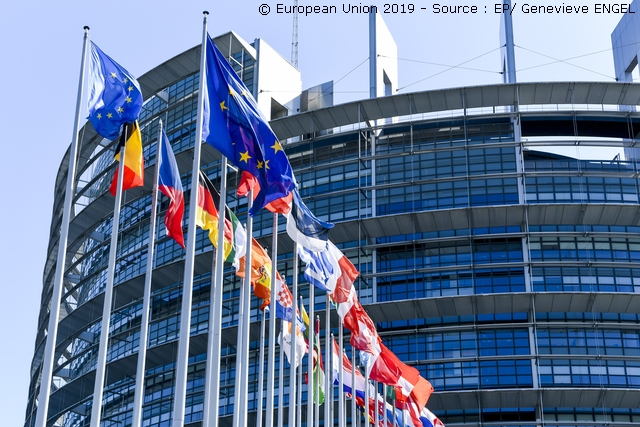European Parliament condemns Ribbentrop-Molotov Pact
Bucharest hails the resolution passed by the European Parliament commemorating the 80th anniversary of the start of WWII and the importance of European remembrance for the future of Europe.

Corina Cristea, 20.09.2019, 13:55
80 years since the outbreak of WWII,
the European Parliament condemns in a resolution the Ribbentrop-Molotov Pact
signed on 23rd August 1939 by the Soviet Union and Nazi Germany – a
treaty of non-aggression which, together with its secret protocols, in effect
divided Europe and the territories of independent states between the two
totalitarian regimes.
The resolution recalls that as a
result of the Ribbentrop-Molotov Pact and the Nazi-Soviet Boundary and
Friendship Treaty of 28th September 1939, the Polish Republic was invaded
first by Hitler and two weeks later by Stalin – which stripped the country of
its independence and was an unprecedented tragedy for the Polish people – the
communist Soviet Union started an aggressive war against Finland on 30 November
1939, and in June 1940 it occupied and annexed parts of Romania – territories
that were never returned – and annexed the independent republics of Lithuania,
Latvia and Estonia. After the defeat of the Nazi regime and the end of WWII,
the resolution also writes, some European countries managed to rebuild and
embark on a reconciliation process. Others, however, remained under
dictatorships, some of which under Soviet occupation or direct influence for
decades, being deprived of freedom, sovereignty, dignity, human rights and
social and economic development.
In Bucharest, president Klaus
Iohannis hailed the resolution, saying it is a step forward towards penalising the
totalitarian regimes responsible for the destruction of an impressive number of
human lives and the grave violation of fundamental rights and liberties.
Educating the young generation to foster respect for democratic principles and
human dignity by including in educational programmes the teaching of the
history of totalitarian regimes is an urgent need of society today, the
Romanian president also said. A statement by the president’s office reiterates
that honouring the victims of totalitarian regimes, defending democracy and the
rule of law, respecting human rights, promoting European values and principles
and taking responsibility for the traumatic past, as well as taking sustained
action to combat extremism, revisionism, illiberalism and all actions aimed at
weakening democracy and threaten social peace are Romania’s priority
objectives.
Under the Soviet-German pact,
in 1940 Romania lost Bessarabia and northern Bukovina, territories that today
form part of the former Soviet republics of Moldova and Ukraine.






























